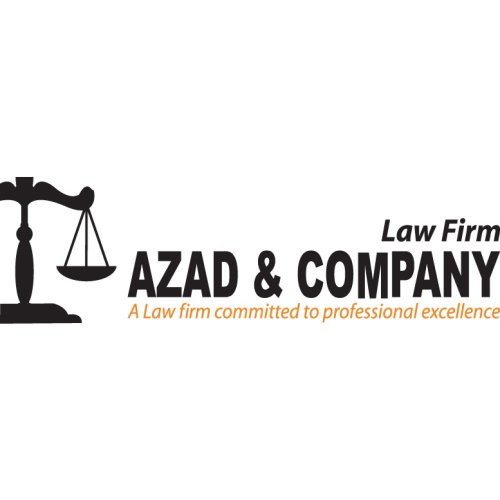Best Tax Increment Financing Lawyers in Bangladesh
Share your needs with us, get contacted by law firms.
Free. Takes 2 min.
Or refine your search by selecting a city:
List of the best lawyers in Bangladesh
About Tax Increment Financing Law in Bangladesh
Tax Increment Financing (TIF) is a public financing method used to subsidize redevelopment, infrastructure, and other community-improvement projects in Bangladesh. It allows the government to invest in projects that can spur economic development without raising taxes or redistributing the existing tax burden. TIF is an evolving financial tool in Bangladesh, aimed at encouraging private investment in regional development and urban infrastructure enhancement.
Why You May Need a Lawyer
Engaging with Tax Increment Financing involves complex legal and financial arrangements. You may need a lawyer for several reasons, including:
- Understanding the legal framework: A lawyer can help decipher intricate laws and policies governing TIF in Bangladesh.
- Negotiating terms: Legal assistance is crucial to negotiate terms and ensure compliance with local laws.
- Project planning and execution: Lawyers ensure that all legal protocols are met during project planning and execution.
- Dispute resolution: Legal guidance may be necessary to resolve any disputes that arise during the TIF process.
Local Laws Overview
The key aspects of local laws relevant to Tax Increment Financing in Bangladesh include:
- Public-Private Partnership Act: Governs collaborations between public entities and private investors for infrastructure projects, often utilizing TIF.
- Urban Planning and Development Act: Provides guidelines on urban development where TIF might be applied for regeneration projects.
- Local Government Acts: Detail the responsibilities and powers of local governments in implementing TIF projects.
Frequently Asked Questions
What is Tax Increment Financing?
TIF is a method of financing public infrastructure projects by capturing the future increase in taxes generated by the enhancements.
How does TIF work in Bangladesh?
In Bangladesh, TIF typically involves identifying a district for development, projecting increases in property tax revenue from improvements, and bonding against those future increments to fund current projects.
What types of projects can TIF fund?
TIF commonly funds infrastructure, urban regeneration, housing, and other economic development projects.
Who manages TIF projects?
TIF projects are often managed by local government bodies in collaboration with private sector partners.
Is TIF risk-free?
No. While potentially beneficial, TIF projects carry risks, including fluctuating property values and uncertain financial returns.
Can TIF be used for residential projects?
Yes, TIF can be used for residential developments, particularly in areas needing regeneration.
Do TIF projects require public input?
Often, TIF projects require public consultation and input to align with community needs and expectations.
How do I apply for TIF funding?
Applications typically go through local government channels, where detailed project plans and budgets are required.
Are there alternatives to TIF?
Yes, alternatives include traditional taxation, grants, and loans but with distinct advantages and disadvantages compared to TIF.
How long do TIF arrangements last?
TIF projects generally last between 20 and 30 years, depending on local regulations and project specifics.
Additional Resources
For additional support and information on Tax Increment Financing in Bangladesh, consider the following resources:
- Bangladesh Investment Development Authority (BIDA): Offers guidance on investment policies.
- Local Government and Engineering Department (LGED): Provides information on infrastructure projects.
- Public-Private Partnership Authority: Supports partnerships in public infrastructure projects.
Next Steps
If you require legal assistance with Tax Increment Financing in Bangladesh, you should:
- Research qualified legal professionals with experience in TIF and public finance.
- Schedule consultations to discuss your specific needs and objectives.
- Prepare all necessary documents and background information about your project.
- Engage a lawyer to navigate the legal processes involved in TIF projects.
Lawzana helps you find the best lawyers and law firms in Bangladesh through a curated and pre-screened list of qualified legal professionals. Our platform offers rankings and detailed profiles of attorneys and law firms, allowing you to compare based on practice areas, including Tax Increment Financing, experience, and client feedback.
Each profile includes a description of the firm's areas of practice, client reviews, team members and partners, year of establishment, spoken languages, office locations, contact information, social media presence, and any published articles or resources. Most firms on our platform speak English and are experienced in both local and international legal matters.
Get a quote from top-rated law firms in Bangladesh — quickly, securely, and without unnecessary hassle.
Disclaimer:
The information provided on this page is for general informational purposes only and does not constitute legal advice. While we strive to ensure the accuracy and relevance of the content, legal information may change over time, and interpretations of the law can vary. You should always consult with a qualified legal professional for advice specific to your situation.
We disclaim all liability for actions taken or not taken based on the content of this page. If you believe any information is incorrect or outdated, please contact us, and we will review and update it where appropriate.
Browse tax increment financing law firms by city in Bangladesh
Refine your search by selecting a city.

















